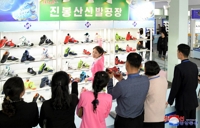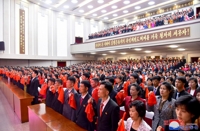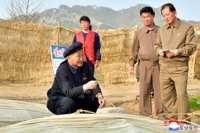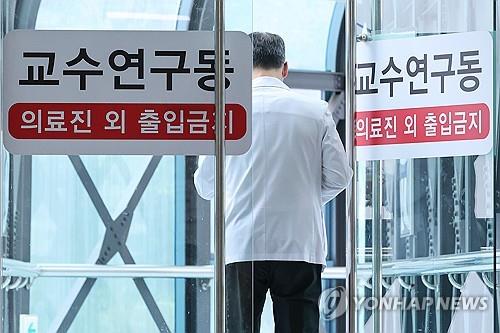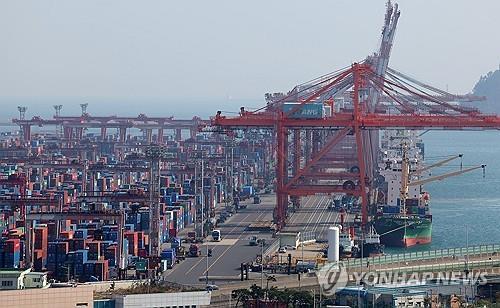(News Focus) S. Korea's economic recovery spurs BOK's rate hike
By Kim Boram
SEOUL, Nov. 30 (Yonhap) -- South Korea's central bank raised the base rate for the first time in six years and five months on Thursday as it is confident in Asia's fourth-largest economy that's experiencing a clear recovery pace, analysts said Thursday.
The hike came after the International Monetary Fund and the Organization for Economic Cooperation and Development have recently revised up their growth targets for the South Korean economy to 3.2 percent each in 2017, citing an upturn in global trade will drive up the country's exports and production.
For next year, they also forecast that South Korea will pull off a near 3 percent growth.
In the July-September period, South Korea's gross domestic product hit a seven-year high of 1.4 percent due to increased construction investment and strong exports. On the back of the third-quarter performance, the country will likely meet the growth target of 3 percent growth set by the South Korean government.
Bank of Korea (BOK) Gov. Lee Ju-yeol said last month that market conditions are "somewhat ripe" for the BOK to gradually tighten its monetary easing stance, hinting at a possible rate rise in the near future.
At the same time, the central bank is moving to seek ways to keep the country's household debts at manageable levels in close consultation with the government and the financial regulator, which have churned out measures to cool down the local real estate market and build financial barriers to make it difficult for people to borrow money.
South Korea's overall debt incurred by households surpassed 1,400 trillion won (US$1.29 trillion) as of the end of September, raising concerns that such massive credits would pose a threat to Asia's fourth-largest economy.
"The super-low interest rate trend has caused some imbalance in the financial market. Now, it is time to normalize it," said Kim Wan-joong, a senior researcher at Hana Financial Investment Corp. "There's no reason to maintain the monetary easing stance further."
Moreover, the BOK's rate-hike decision came as the U.S. Federal Reserve is widely expected to raise its key rate by another 25 basis points next month, following an increase in June, narrowing the rate gap with South Korea.
A higher interest rate in the United States may cause a sudden outflow of foreign money from the South Korean financial market.
But some economists noted that the economic recovery is not strong enough to absorb the impact of the rate increase, citing that the upturn is driven largely by a boom in the semiconductor sector.
The latest government data showed that South Korea's industrial output fell 1.1 percent on-month in October, backtracking from a 0.2 percent rise in the previous month. Private consumption also ended in negative terrain last month on a 2.9 percent drop in October from a 3.1 percent gain in September.
"If the BOK raises the interest rate at a faster pace, it will impact the economy," said Kim Hyun-wook from the state-run Korea Development Institute. "A rate hike will weigh heavily on nearly all businesses except for chipmakers, along with a stronger Korean won."
brk@yna.co.kr
(END)
-
 S. Korea marks 30th anniv. of Korean Pavilion at Venice Biennale with contemporary art
S. Korea marks 30th anniv. of Korean Pavilion at Venice Biennale with contemporary art -
 Ateez member Yunho throws first pitch at MLB match between Dodgers, Mets
Ateez member Yunho throws first pitch at MLB match between Dodgers, Mets -
 Gov't likely to accept university chiefs' request to lower med school enrollment quota
Gov't likely to accept university chiefs' request to lower med school enrollment quota -
 S. Korea supports resolution backing U.N. membership of Palestine
S. Korea supports resolution backing U.N. membership of Palestine -
 Chinese man behind drug scam targeting teens nabbed in Cambodia
Chinese man behind drug scam targeting teens nabbed in Cambodia
-
 S. Korea marks 30th anniv. of Korean Pavilion at Venice Biennale with contemporary art
S. Korea marks 30th anniv. of Korean Pavilion at Venice Biennale with contemporary art -
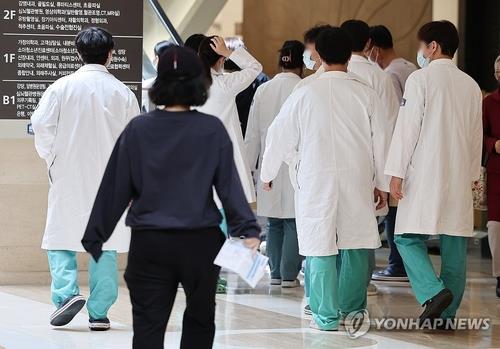 Gov't likely to accept university chiefs' request to lower med school enrollment quota
Gov't likely to accept university chiefs' request to lower med school enrollment quota -
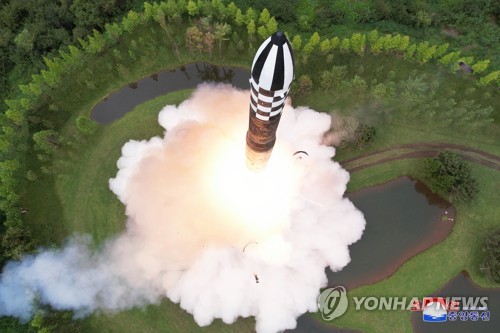 Experts see possibility of N.K. conducting nuclear test before U.S. presidential vote
Experts see possibility of N.K. conducting nuclear test before U.S. presidential vote -
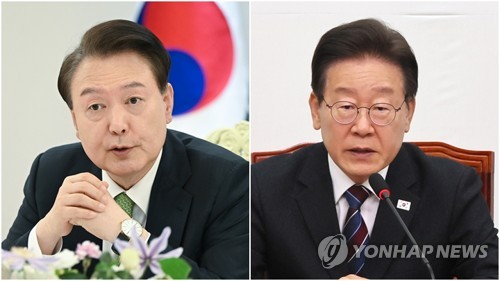 Details of meeting between Yoon, opposition leader undecided: presidential office
Details of meeting between Yoon, opposition leader undecided: presidential office -
 Looming weekly closure of major hospitals feared to worsen medical service crisis
Looming weekly closure of major hospitals feared to worsen medical service crisis
-
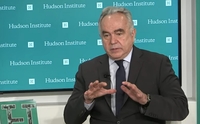 U.S. will take steps for three-way engagement on nuclear deterrence with S. Korea, Japan: Campbell
U.S. will take steps for three-way engagement on nuclear deterrence with S. Korea, Japan: Campbell -
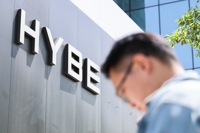 (LEAD) Hybe to file complaint against sublabel executives over internal conflict
(LEAD) Hybe to file complaint against sublabel executives over internal conflict -
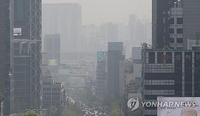 S. Korea reports highest suicide rate, ultra fine dust level among OECD nations: data
S. Korea reports highest suicide rate, ultra fine dust level among OECD nations: data -
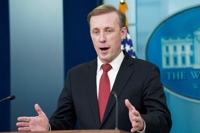 U.S. sent ATACMS missiles to Ukraine following Russia's use of N.K. missiles: White House
U.S. sent ATACMS missiles to Ukraine following Russia's use of N.K. missiles: White House -
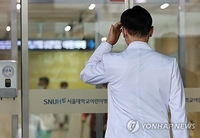 Looming weekly closure of major hospitals feared to worsen medical service crisis
Looming weekly closure of major hospitals feared to worsen medical service crisis















